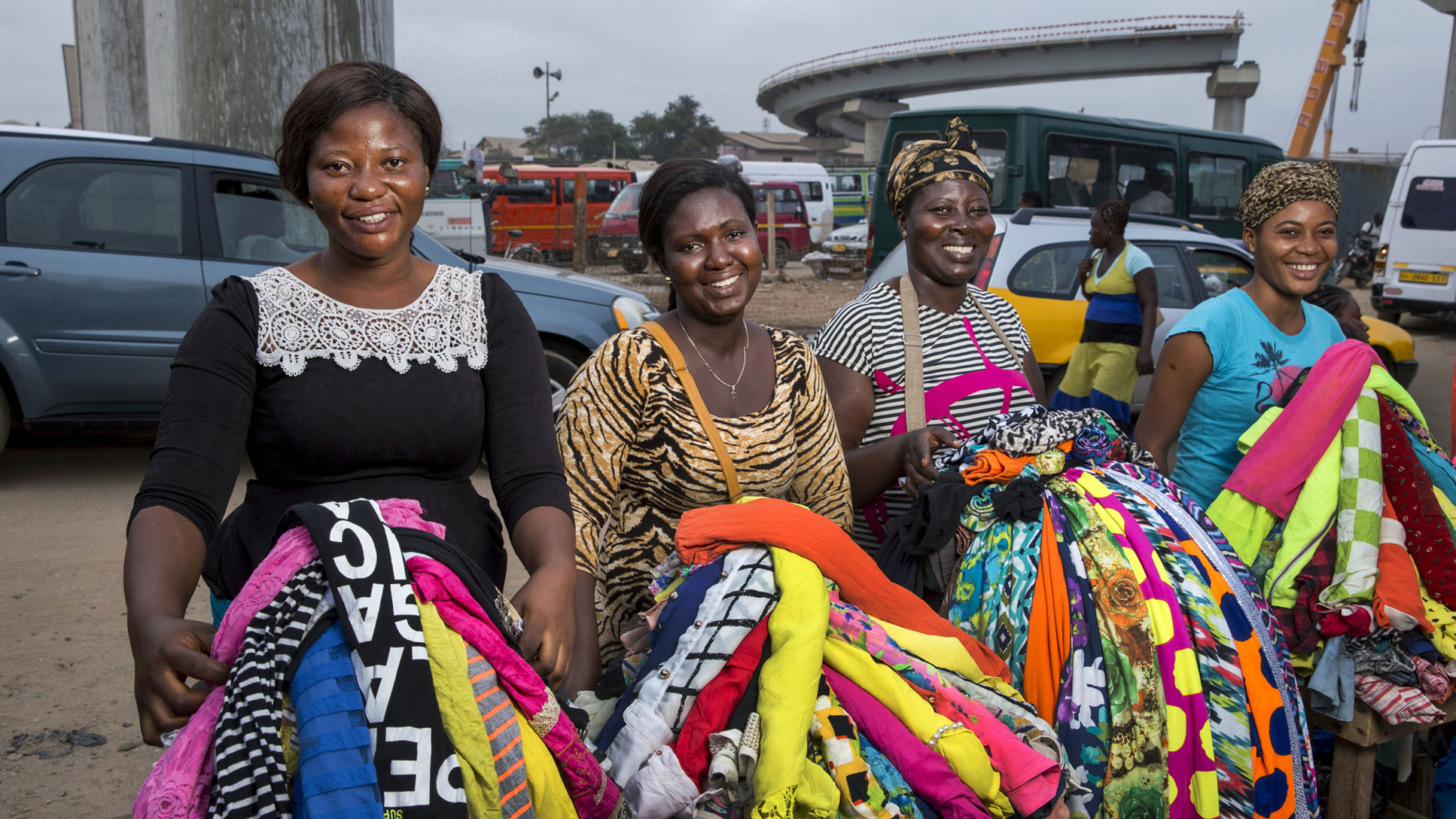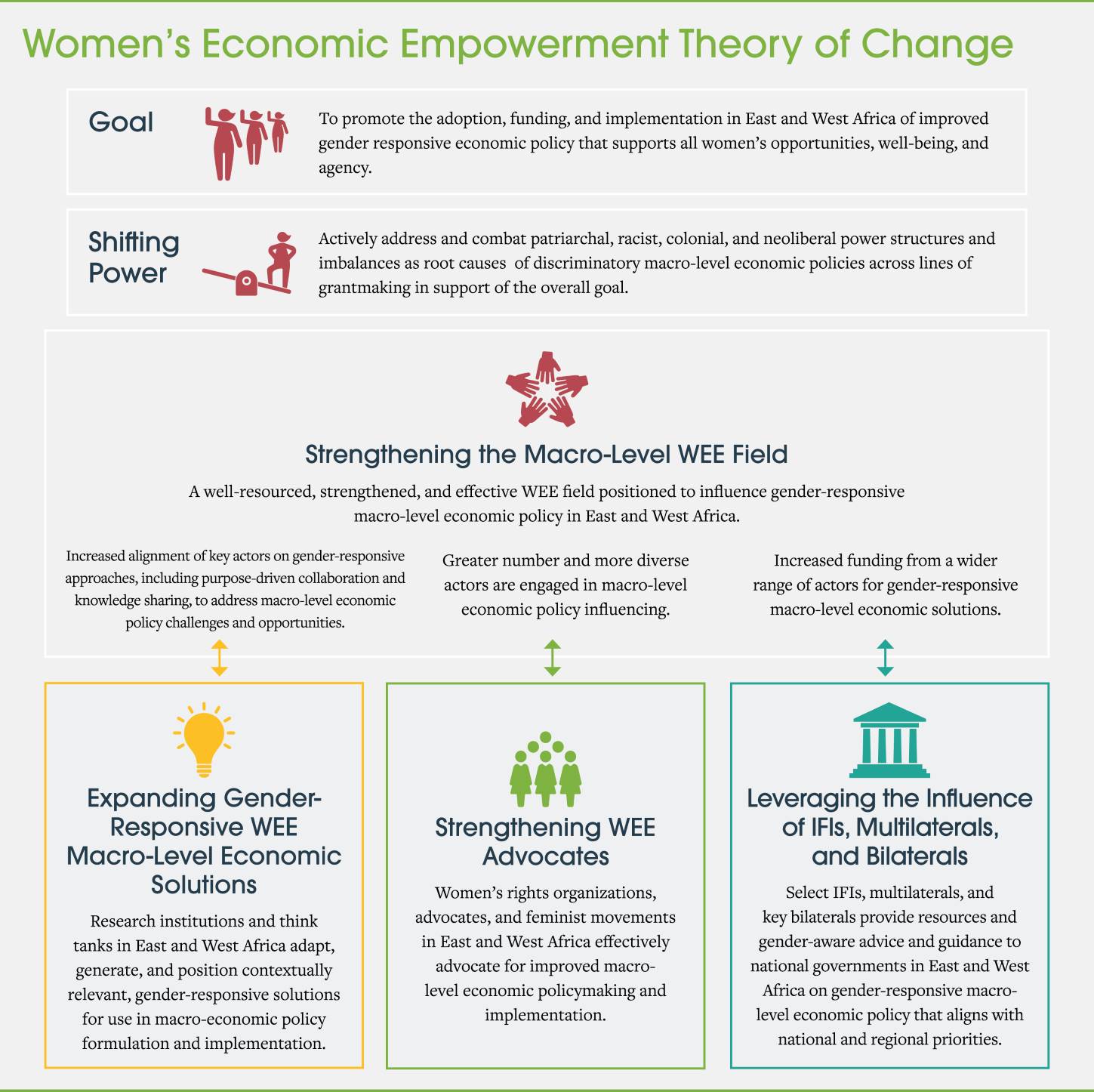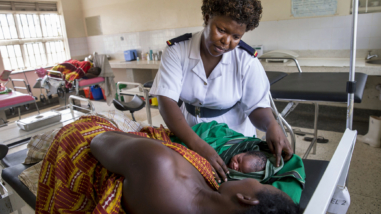Introducing our new Women’s Economic Empowerment Strategy

In 2020 we launched a strategy refresh process to gauge our progress and reassess our approach. The refresh began with a retrospective evaluation of our work on WEE. We invited current grantee partners to provide input in assessing our progress through interviews, focus groups, and a survey. We followed the evaluation by a landscape scan that looked at current and future trends in WEE, which was informed by what we heard from existing and new grantee partners, peer donors, and, importantly, African regional stakeholders. We are grateful for the support of our grantee partners, peer funders, and all stakeholders who meaningfully informed this work.
We learned that, despite continuing gaps in data and evidence, the WEE field has made much progress since 2015. Yet while inputs to gender-responsive economic policy (such as gender-disaggregated data) have improved, macroeconomic policies are still formulated and implemented in ways that disadvantage women. This is true in both high-income and low-income countries.



